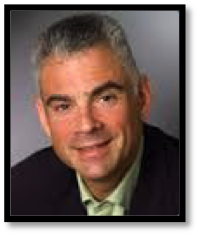 Jack Fuchs is a CFO, Entrepreneur, Mentor and Investor, who also teaches entrepreneurship at Stanford University in the graduate engineering school. He was invited by Eric Horlait, Inria’s Deputy CEO for Transfer and Industrial Partnership, to give a 2-day seminar in Paris to share his knowledge and experience with Inria’s Technology and Transfer Officers.
Jack Fuchs is a CFO, Entrepreneur, Mentor and Investor, who also teaches entrepreneurship at Stanford University in the graduate engineering school. He was invited by Eric Horlait, Inria’s Deputy CEO for Transfer and Industrial Partnership, to give a 2-day seminar in Paris to share his knowledge and experience with Inria’s Technology and Transfer Officers.
We asked Jack and Eric about this initiative.
-
Jack, you are teaching a project-based course on Entrepreneurship at Stanford : could you tell us few words about the objective of the course and the relation with the Silicon Valley eco-system?
Jack Fush: The Stanford course is called Technology Venture Formation, where we guide students as they develop technology-based businesses. Students are mentored by the faculty as well as leading entrepreneurs and investors. At the end of the course, students present their businesses to partners at leading venture capital firms.
-
Jack recently gave a 2-days workshop focused on Entrepreneurship to the Inria engineers in charge of supporting Innovation activities leveraging Inria research results: what was the motivation for organizing the workshop?
Eric Horlait: Inria supports technology transfer through various programs. One of them is startup creation. For many years, we provide researchers with support for developing prototypes from research results. This is done by hiring engineers who work with the researchers in order to help the development of the technological part of the startup project. We think that this is not enough as business aspects of startup creation is probably a little bit more important than the technical part. Following this idea, we choose to launch a program focussing on marketing, product design, sales, finance, etc. It is equally important that these concepts become familiar to our TTOs who help the startup teams each and every day. This workshop was designed to introduce these business oriented concepts toward TTOs. Jack had also the chance to explain how the ecosystem of the Silicon Valley deals with such projects. At the total, 16 people were there to listen to these very interesting and exciting sessions.
-
How do you see the key differences, and may be similarities, with what is going on in the Silicon valley?
Jack: Inria is leveraging research to incubate companies and provide early capital and mentorship in a similar way to Silicon Valley. Some companies in Silicon Valley leverage university research, raise seed capital from individuals or firms, and start to grow a wonderful business. At Inria, the same process occurs, though the teams tend to focus more on the product/technology and less on the fit with a target market. The resources available to startup companies in France (e.g., funding, mentorship, and business leadership) are less prevalent, but the ecosystem is improving all the time.
About the take-away from the workshop
-
Jack, do you feel the Stanford way may influence and help the Inria approach to innovation?
Jack: I believe the frameworks introduced to Inria will allow it to better evaluate candidates for technology transfer and incubation. Moreover, they will help projects improve more rapidly, focusing them on the product market fit – how what’s really cool about the technological innovation meets a customer need “hand-in-glove.”
-
Eric, how do you see the short to mid term impact of the course for the Innovation initiatives within Inria?
Eric: Opening the minds is, to me, a key to innovation. This course was a step forward in order for Inria’s innovation team to have a wider view of what is the real process of startup creation, what are the key points for investors, how to evaluate the potentialities of an idea, etc. Jack presented a framework for the evaluation of technological projects and this framework will be a set of guidelines for the day to day job. Of course, we can adapt the scheme to our specific environment, but we have a very good starting point. As this course was very well appreciated, I think we will schedule anther session next spring to go into more details and work with real projects.
When Inria and Silicon Valley meet
-
Any insight regarding the possible impact for innovation from Inria research?
Jack: I hope the attendees appreciate the tremendous opportunity Inria allows for these project leaders to develop the best version of Silicon Valley’s ideals right where they are. Inria is rich with technical talent and innovative technology. It provides myriad possibilities for early-stage funding and mentorship. Connections to industry provide fertile ground for early partners and customer adoption. With a bit more disciplined market focus, these tools can be leveraged more effectively to grow successful businesses. I look forward to being helpful in any way I can.
Interview by Valérie Issarny
About Jack FuchsJack Fuchs is an entrepreneur, a lecturer, and an angel investor. His current positions include Board representation, advisor, and CFO responsibilities with IT, med-tech, and clean tech businesses. From 2012 – 2013, he was CFO of NextBio, Inc., a big-data genomics company targeting personalized medicine, which was acquired by Illumina corporation in October 2013. Previously, he was CFO of ForteBio Inc. and has held leadership positions in Finance, Sales, Marketing, Product Management, and Business Development at a number of private companies. Jack was an Engagement Manager with McKinsey & Company, where his client focus was health care and wireless communications. In addition to his entrepreneurial pursuits, Jack is a Lecturer in Entrepreneurship at Stanford University. Jack mentors entrepreneurs, serves on Boards of private companies, and acts as an angel investor. He holds an AB in Engineering Sciences with Honors from Dartmouth College magna cum laude and phi beta kappa, and he received his MBA from Stanford University as an Arjay Miller Scholar. |